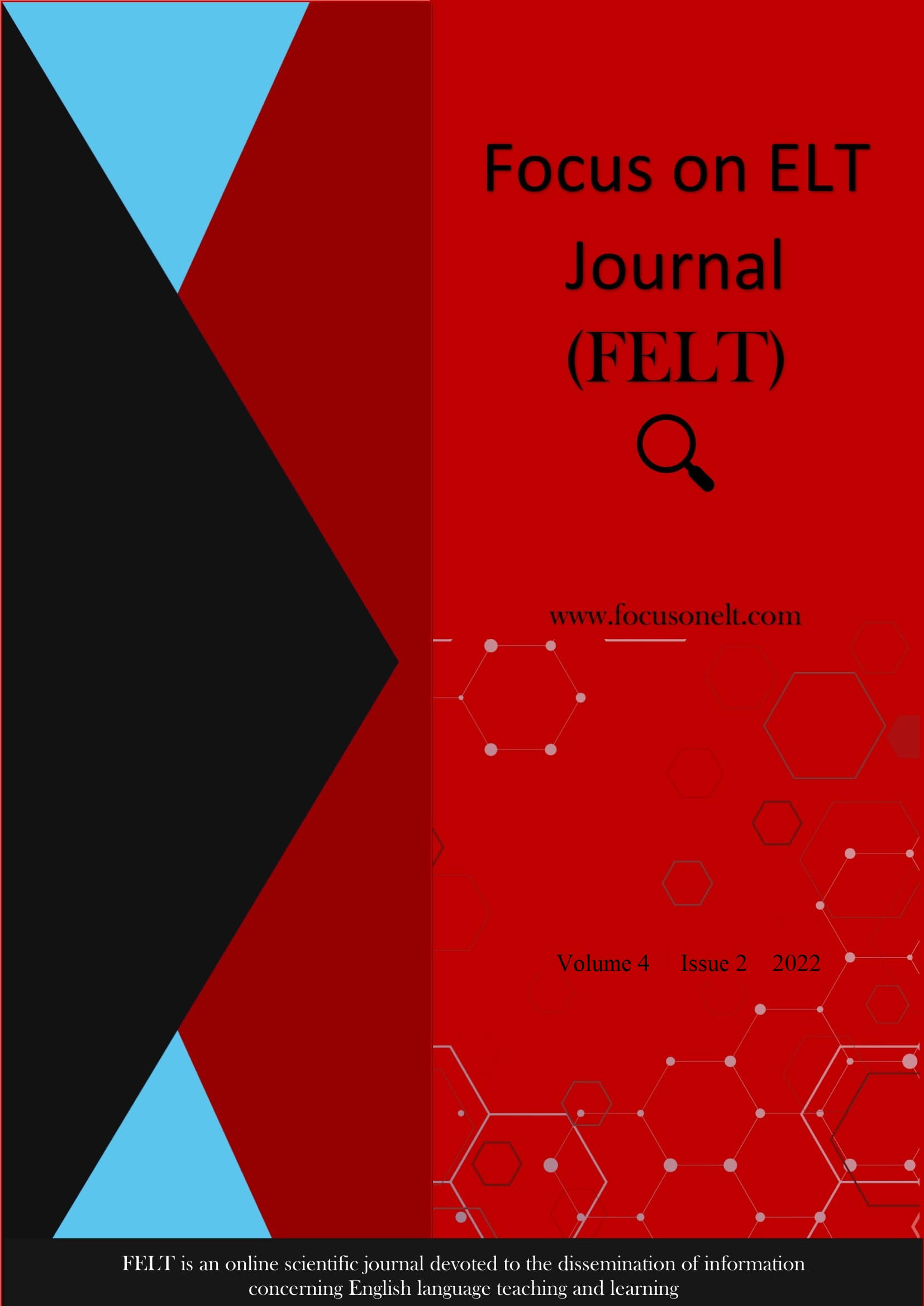EFL teachers’ professional experiences in the southeastern Türkiye
Main Article Content
Abstract
Although a number of English language teachers commence their professional careers in under-resourced and underprivileged regions, far too little attention has been paid to their experiences as an area of research, particularly in Türkiye. This qualitative study investigates the concerns and challenges that English language teachers experience in the southeastern region of Türkiye. The participants consisted of nine novice English language teachers in different school grades in state schools. Interviews were used as a data collection tool. Participants’ reflections and comments revealed teachers’ sociological and pedagogical negative or positive experiences after their appointment to Şırnak in the southeastern region of Türkiye. The findings of the study revealed context-specific challenges these teachers experience and how they deal with these challanges. Implications are presented in line with the findings to guide administrators, teacher educators, and policymakers.
Metrics
Article Details

This work is licensed under a Creative Commons Attribution-NonCommercial-NoDerivatives 4.0 International License.
References
Akcan, S. (2016). Novice non-native English teachers' reflections on their teacher education programmes and their first years of teaching. Profile Issues in Teachers Professional Development, 18(1), 55-70.
https://doi.org/10.15446/profile.v18n1.48608
Ary, D., Jacobs, L. C., Razavieh, A., & Sorensen, C. (2010). Introduction to research in education. Wadsworth Cengage Learning.
Çakmak, M. (2013). Learning from teaching experiences: Novice teachers’ thoughts. HU Journal of Education, 1, 55-67.
Charmaz, K. (2014). Constructing grounded theory. Sage.
Cohen, L., Morrison, K., & Manion, L. (2005). Research methods in education (5th ed.). Routledge Falmer, Taylor & Francis Group.
Creswell, J. W. (2012). Educational Research: Planning, conducting, and evaluating quantitative and qualitative research. Pearson Education.
Crookes, G. (1997). What influences what and how second and foreign language teachers teach? The Modern Language Journal, 81(1), 67-79. https://doi.org/10.1111/j.1540-4781.1997.tb01627.x
Daloglu, A. (2004). A professional development program for primary school English language teachers in Turkey: Designing a materials bank. International Journal of Educational Development, 24(6), 677-690.
https://doi.org/10.1016/j.ijedudev.2004.04.001
Darling-Hammond, L. (2003). Keeping good teachers: Why it matters, what leaders can do. Educational Leadership, 60(8), 6-13.
Faez, F., & Valeo, A. (2012). TESOL teacher education: Novice teachers' perceptions of their preparedness and efficacy in the classroom. TESOL Quarterly, 46(3), 450-471. https://doi.org/10.1002/tesq.37
Farrell, T. S. (2006). The first year of language teaching: Imposing order. System, 34(2), 211-221.
https://doi.org/10.1016/j.system.2005.12.001
Farrell, T. S. (2012). Novice‐service language teacher development: Bridging the gap between preservice and in‐service education and development. TESOL Quarterly, 46(3), 435-449.
https://doi.org/10.1002/tesq.36
Feiman-Nemser, S., Carver, C., Schwille, S., & Yusko, B. (1999). Beyond support: Taking new teachers seriously as learners. In M. Scherer (Ed.), A better beginning: Support and mentoring new teachers (pp. 3-12), Virginia: ASCD.
Flores, M. A., & Day, C. (2006). Contexts which shape and reshape new teachers’ identities: A multi-perspective study. Teaching and teacher education, 22(2), 219-232. https://doi.org/10.1016/j.tate.2005.09.002
Kardos, S. M., Johnson, S. M., Peske, H. G., Kauffman, D., & Liu, E. (2001). Counting on colleagues: New teachers encounter the professional cultures of their schools. Educational Administration Quarterly, 37(2), 250-290. https://doi.org/10.1177/00131610121969316
Lee, J. (2017). Hidden Challenges of Novice English Teachers in a Korean Independent School: Through an Ethnographic Lens. The Qualitative Report, 22(6), 1637-1652.
https://doi.org/10.46743/2160-3715/2017.2876
McDonald, F. J., & Elias, P. (1983). The Transition into Teaching: The Problems of Beginning Teachers and Programs to Solve Them. ERIC Descriptive (141), Information Analyses (070).
Öztürk, M., & Yıldırım, A. (2013). Adaptation challenges of novice teachers. Hacettepe Üniversitesi Eğitim Fakültesi Dergisi [Hacettepe University Journal of Education], 28(1), 294-307.
Peacock, M. (2009). The evaluation of foreign-language-teacher education programmes. Language Teaching Research, 13(3), 259-278. https://doi.org/10.1177/1362168809104698
Ryan, K. (1974). Survival Is Not Good Enough: Overcoming the Problems of Beginning Teachers.
Ryan, K. (1986). The Induction of New Teachers. Fastback 237. Phi Delta Kappa, Eighth and Union.
Schatz-Oppenheimer, O., & Dvir, N. (2014). From ugly duckling to swan: Stories of novice teachers. Teaching and Teacher Education, 37, 140-149.
Seidman, I. (2006). Interviewing as qualitative research: A guide for researchers in education and the social sciences. Teachers College Press.
Turner, D. W. (2010). Qualitative interview design: A practical guide for novice investigators. The Qualitative Report, 15(3), 754-760. https://doi.org/10.46743/2160-3715/2010.1178
Uztosun, M. S. (2016). Pre-service and in-service English teachers’ efficacy beliefs about teaching English at primary schools. İlköğretim Online, 15(4), 1191-1205 https://doi.org/10.17051/io.2016.80068
Veenman, S. (1984). Perceived problems of beginning teachers. Review of Educational Research, 54(2), 143-178.
https://doi.org/10.3102/00346543054002143
Winter, E. C., & McGhie‐Richmond, D. (2005). Using computer conferencing and case studies to enable collaboration between expert and novice teachers. Journal of Computer Assisted Learning, 21(2), 118-129. https://doi.org/10.1111/j.1365-2729.2005.00119.x

